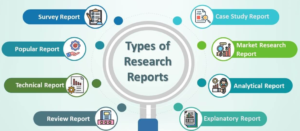The Research Clerk Agency are supporting Industrial Production Quality Control by offering a range of services aimed at ensuring the consistency, reliability, and compliance of manufactured products with specified quality standards. Here’s how we could operate in this work in the context of your organization.
Quality Control Planning
Assess Requirements: Understand the quality standards, specifications, and requirements set by the client or relevant regulatory bodies.
Develop Inspection Criteria: Create detailed inspection criteria and quality control protocols tailored to the specific characteristics and critical parameters of the products being manufactured.
Supplier and Material Evaluation
Supplier Assessment: Evaluate the capabilities and performance of suppliers, including their production processes, quality management systems, and adherence to regulatory requirements.
Material Testing: Conduct testing and analysis of raw materials and components to ensure they meet quality specifications before they are used in production.
In-Process Inspection
Production Monitoring: Conduct regular inspections and monitoring of the manufacturing process to identify and address any deviations or defects in real-time.
Sampling and Testing: Collect samples at various stages of production and perform quality tests to verify compliance with specifications and standards.
Finished Product Inspection
Final Inspection: Perform comprehensive inspections of finished products to ensure they meet all quality requirements before they are released for distribution or sale.
Statistical Analysis: Utilize statistical methods such as sampling plans, control charts, and process capability analysis to assess product quality and process stability.
Defect Analysis and Root Cause Investigation
Identify Defects: Document and classify any defects or non-conformities discovered during inspections or testing.
Root Cause Analysis: Investigate the root causes of defects using techniques such as 5 Whys, fishbone diagrams, or failure mode and effects analysis (FMEA) to implement corrective and preventive actions.
Quality Assurance Documentation
Record Keeping: Maintain comprehensive records of all quality control activities, including inspection reports, test results, corrective actions, and quality assurance certificates.
Documentation Review: Review and verify the completeness and accuracy of quality assurance documentation to ensure compliance with regulatory requirements and customer specifications.
Continuous Improvement
Performance Monitoring: Track key performance indicators (KPIs) related to quality, such as defect rates, customer complaints, and on-time delivery, to identify trends and opportunities for improvement.
Process Optimization: Collaborate with production teams to identify and implement process improvements that enhance product quality, increase efficiency, and reduce waste.
Training and Capacity Building
Training Programs: Provide training and skill development programs for production personnel on quality control techniques, standards compliance, and problem-solving methodologies.
Knowledge Transfer: Share best practices and lessons learned from quality control activities to foster a culture of continuous learning and improvement within the organization.
The Research Clerk Agency will help manufacturing companies maintain high standards of product quality, enhance customer satisfaction, and achieve their business objectives in competitive markets.










